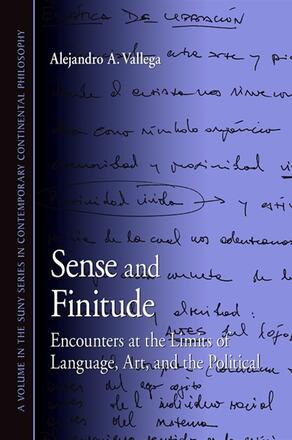
Sense and Finitude
Encounters at the Limits of Language, Art, and the Political
Alternative formats available from:
Takes Heidegger’s later thought as a point of departure for exploring the boundaries of post-conceptual thinking.
Description
Sense and Finitude interrogates one of continental philosophy's central insights: the temporality or finitude of philosophical thought. Juxtaposing the views of such philosophers as Plato, Heidegger, Walter Benjamin, Gadamer, and Derrida on art, poetry, and non-Western cultures with the insights of those very artists, poets, and cultures interpreted by them, Alejandro A. Vallega elucidates a certain sensibility fundamental to philosophical thought once it has come face-to-face with its concrete finitude—in the sense that philosophical ideas are always exposed to interpretation, transformation, and loss. By addressing philosophy's exposure to experience beyond its own delimitations, Vallega shows how such investigations can enrich the philosophical enterprise.
Alejandro A. Vallega is Assistant Professor of Philosophy and Latin American Studies at California State University Stanislaus. He is the author of Heidegger and the Issue of Space: Thinking on Exilic Grounds.